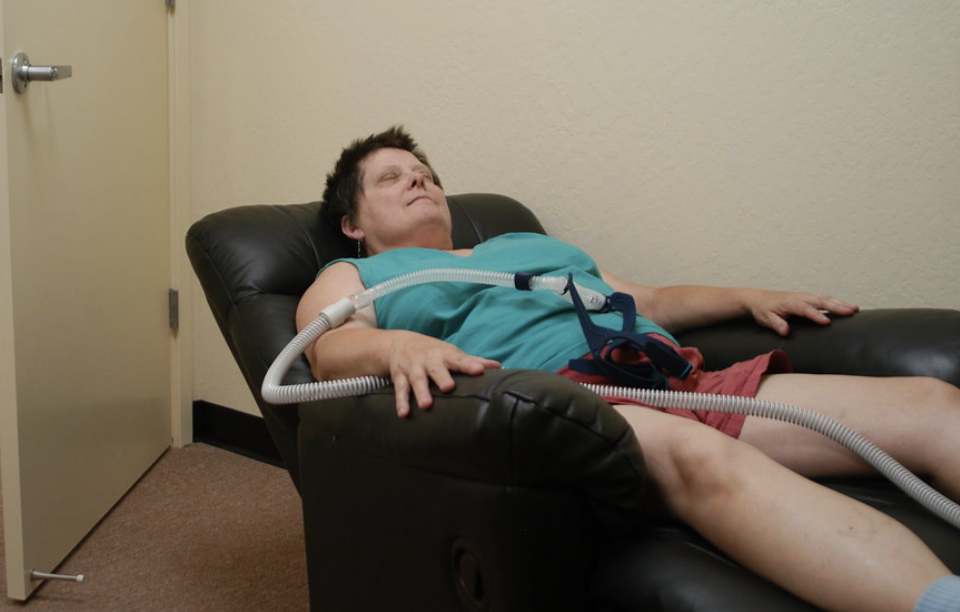

Sleep apnea is a common sleep disorder that affects millions of people worldwide. Despite its prevalence, there are still many myths and misconceptions surrounding this condition. Not to mention that increased exposure to the internet leads individuals to believe anything.
You should know that the symptoms are strictly generic in nature, and while certain things can happen to people, it doesn't necessarily mean that it will happen to you, too. With the difference in symptoms among people, it is only normal to come across some sleep apnea myths. This article will dive deeper into the common sleep apnea myths that people have and shed some light on the facts.
While overweight can be one of the probable reason why an individual might have obstructive sleep apnea, it doesn't mean that it only affects overweight people. This means that this sleep disorder can affect people of all body types and sizes.
Sleep apnea causes pauses in breathing while sleeping. This happens due to the partially or completely blocked upper airway. The reason behind this sort of obstruction can be the cause of various things such as age, genetics and anatomical features. In fact, some individuals with a healthy body mass index (BMI) may still develop sleep apnea.
Snoring can be a symptom of sleep apnea, but the two are not the same. The main complication of sleep apnea is episodes of apneas (pauses in breathing) while sleeping. This usually occurs due to the blockage in the airways, which subsequently causes snoring.
Snoring is the sound produced when air flows past relaxed tissues in the throat, causing them to vibrate. Sleep apnea, on the other hand, involves the repeated cessation of breathing during sleep. Not everyone who snores has sleep apnea, but snoring should be evaluated, especially if it is accompanied by other symptoms like daytime fatigue.
Any medical condition that causes or involves other medical conditions is certainly not harmless. Sleep apnea itself is a serious condition as it makes the individual stop breathing while sleeping. In severe cases such as central sleep apnea, it can be life-threatening as well. Thus, sleep apnea is far from harmless. It can lead to a range of serious health issues, including:
Cardiovascular problems: High blood pressure, stroke and other heart diseases are linked with sleep apnea.
Daytime fatigue: Frequent awakenings due to sleep apnea can lead to excessive daytime sleepiness, reducing alertness and cognitive function. This can impact the overall quality of life.
Metabolic disturbances: Sleep apnea can disrupt the insulin resistance in your body which can further expose you to an increased risk of type 2 diabetes.
Mood disorders: People with untreated sleep apnea are more likely to experience depression and anxiety.
Compromised Sleep Quality: Sleep apnea can affect relationships and overall well-being due to its impact on sleep and daytime functioning.
Sleep apnea is not restricted to any age group, though it is more common in older adults. But this doesn't mean that it can't affect children. In children, sleep apnea is often related to enlarged tonsils or adenoids, which can obstruct the airway during sleep. It's essential to be aware of the symptoms in children, such as snoring, restless sleep, and behavioural issues, as untreated sleep apnea can lead to developmental problems.
Mostly, sleep apnea is the result of bad and unhealthy lifestyle choices. These choices are quite prevalent in men, such as excessive alcohol consumption and smoking. Due to this reason, sleep apnea affects men more than women.
However, it would be wrong to assume that it only affects men. Women can and do develop sleep apnea. It is often underdiagnosed in women because their symptoms may differ from those commonly seen in men. Women with sleep apnea may be more likely to experience insomnia, morning headaches, and mood disturbances rather than loud snoring.
Sleep apnea is a severe condition that causes pauses in breathing while sleeping, which could be life-threatening. Therefore, various therapies are recommended for individuals suffering from it. One such therapy involves Continuous Positive Airway Pressure (CPAP). It is one of the most common way to treat sleep apnea, but it's not the only option. The choice of treatment depends on the severity of the condition and individual preferences. Other treatment options include:
BiPAP (Bilevel Positive Airway Pressure) therapy, which adjusts air pressure as you breathe in and out.
Oral appliances are used to reposition the jaw and tongue or both to keep the airway open and obstruction-free.
Lifestyle changes, such as weight loss, positional therapy, and avoiding alcohol and sedatives before bedtime.
Surgery may be recommended in severe cases or when other treatments have not been effective.
Untreated sleep apnea can lead to its advanced form, central sleep apnea. It can have serious consequences for your health and quality of life. As mentioned earlier, it is associated with an increased risk of heart disease, stroke, diabetes, and other health problems. Besides, it can impact your daily life by causing excessive daytime sleepiness, impaired cognitive function, and mood disturbances. It can also strain relationships due to loud snoring and disrupted sleep.
While occasional snoring may not be a cause for concern, chronic and loud snoring can be a sign of an underlying issue, such as sleep apnea. It is crucial to pay attention to snoring, especially if it is accompanied by other symptoms like gasping for air during sleep, morning headaches, or daytime fatigue. Addressing snoring and knowing its causes can lead to better sleep quality.
Sleep apnea is a serious sleep disorder with potentially severe health consequences if left untreated. The episodes of apneas can be life-threatening depending upon the severity of the condition. Thus, it's important to dispel the myths and misconceptions surrounding this condition and recognize the importance of seeking diagnosis and treatment when needed. If you suspect you or a loved one may have sleep apnea, consult a healthcare professional for a proper evaluation and guidance.
Leave a comment